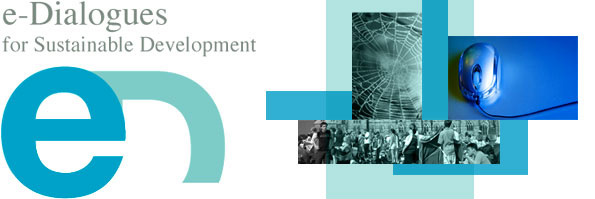|
Governance underlies all other issues, whether in corporate, government or civil society (Bell 2002; Dale 2001; Sabel 2001; Young & Maltke 1993), and especially in the implementation of sustainable infrastructure. All three levels of government—municipal, provincial and federal are involved in varying degrees. Mainly, it is the municipal government that is on the front line of developing and maintaining built infrastructure that remains largely hidden and taken for granted until it breaks down or there is an accident, such as the recent overpass collapse in Quebec.
It is not just a question of money, but reflects deeper challenges of full cost accounting, divisive accountability, overlapping jurisdictions, lack of coherent and coordinated policies and incentives that continue a persistently deteriorating built infrastructure. In Canada, there are billions of dollars in deferred maintenance in buildings alone. Besides affecting health, productivity and bottom line costs, this lack of attention to basic maintenance costs the environment in terms energy waste and increased greenhouse gas emissions: it is economically inefficient, environmentally damaging and socially regressive.
Modern day governments are organized around problems that existed in 1867, and do not reflect the dynamically interconnected and evolving issues of the 21st century. It requires leaders of vision who recognize that our modern society needs both local and national governments, as modern day problems are beyond the capacity of any one sector, any one jurisdiction, or any one industry to solve. Problems of gridlock, implementation gaps, and pervasive solitudes, silos and stovepipes, a lack of coherent and informed dialogue and a lack of congruence between political levels are pervasive.
We need a revitalization of government, not based on old arguments of power and control, but a structure designed to respond to modern day realities. This restructuring must take into account the critical necessity for integrated decision-making, reconciliation of ecological, social and economic imperatives with regulatory incentives that facilitate widespread knowledge diffusion and implementation of integrated community sustainability plans in every community in this country, including First Nations communities.
Bell, D. 2002. The role of Government in Advancing Corporate Sustainability. Background paper prepared under contract to Environment Canada for the G8 Environmental Futures Forum in Vancouver, March
Dale, A. 2001. At the Edge: Sustainable Development in the 21st Century. Vancouver: UBC Press
Young, O. and K. von Moltke. 1993. To Avoid Gridlock. Governance Without Government. In Working Progress 14(2): 4
Sabel, C. 2001. A Quiet Revolution of Democratic Governance: Towards Democratic Experimentalism. In Governance in the 21st Century, OECD, Paris.
|
Dr. Ann Dale, Professor,
Science, Technology & Environment, Royal Roads University
Trudeau Fellow
 Dr. Dale is a rare hybrid, both an academic and an activist. Currently she is engaged in two major research initiatives at Royal Roads University. First, she is leading the e-Dialogues for Sustainable Development, a series of online dialogues exploring critical issues using the power of the internet to influence public policy. Second, she is working on exploring the relationship between social capital and sustainable community development. Dr. Dale is a rare hybrid, both an academic and an activist. Currently she is engaged in two major research initiatives at Royal Roads University. First, she is leading the e-Dialogues for Sustainable Development, a series of online dialogues exploring critical issues using the power of the internet to influence public policy. Second, she is working on exploring the relationship between social capital and sustainable community development.
| Background |
|
Infrastructure choices play a central role in the creation and maintenance of communities that are sustainable, livable, and prosperous. The challenge is to engage with people and their diverse cultures, interests, visions, priorities and needs. One of the major reasons sustainable community development remains largely unresolved within municipalities is gridlock in the planning and implementation processes for decision-making. There are basic disconnections between federal, regional and local governments, between rural and urban communities, and between business and research communities. The challenge is to encourage widespread adoption of the infrastructure decisions being made by communities on the lead-edge of adoption of more sustainable infrastructure.

This series of e-dialogues will explore infrastructure choices in the five focus areas of the Sustainable Infrastructure project: energy, transportation, waste management, land use planning and governance. We will also hold a wrap-up dialogue that finds common ground from these five areas. These e-dialogues will involve experts from the field discussing the critical infrastructure choices necessary for sustainable community development and leading-edge North American examples of sustainable infrastructure development. Through these dialogues, we hope to develop an understanding of how current municipal decision-making may lead toward achievement of sustainability objectives. We hope you will join us in these vibrant discussions.
|
| Panelists |
 |
Ann Dale, Project Lead, Moderator
Ann Dale is a professor with the School of Environment and Sustainability, Faculty of Social and Applied Sciences at Royal Roads University and holds a Canada Research Chair in Sustainable Community Development (crcresearch.royalroads.ca). She chairs the Canadian Consortium for Sustainable Development Research (CCSDR), a consortium of all the heads of research institutes across Canada, and is active in the Canadian environmental movement. Dr. Dale chairs an organization she created, the National Environmental Treasure (the NET) and is the Executive Co-ordinator, Research and Public Policy for the Canadian Biodiversity Institute. From 1998-2000, she led an energy efficiency program on behalf of the Association of Canadian Community Colleges. Previously, she was an Executive with the Federal Government, and was one of the two public servants behind the creation of the National Round Table on the Environment and the Economy (NRTEE).
Dr. Dale is a Trudeau Fellow (www.trudeaufoundation.ca), as well as a Fellow of the World Academy of Art and Sciences. She is also a Board member of the World Fisheries Trust, and the Advisory Committee to the Montreal Institute for the Environment. Dr. Dale holds degrees in psychology and public administration from Carleton University, and a doctorate in Natural Resources Sciences, McGill University. Current research areas include governance, social capital and sustainable community development, biodiversity policy, and deliberative electronic dialogues (crcresearch.royalroads.ca/edialogues). She is a recipient of the 2001 Policy Research Initiative Award for Outstanding Contribution to Public Policy for her book, At the edge: sustainable development in the 21st century.
|
 |
Jim Hamilton
Jim is a seasoned consultant with extensive experience in the governance and financing of public institutions, especially in relationship to questions of sustainability. Jim's experiences stem from over twenty-five years in analyzing and advising on financial, environmental and sustainability matters while with Hamilton, Thomas and Associates Ltd and previously as a senior executive and analyst within the Treasury Board Secretariat within the Government of Canada. Included among his major contributions is co-founding the Federal Buildings Initiative within Natural Resources Canada. The Federal Buildings Initiative is a government-wide initiative to take advantage of alternative techniques to finance energy and water savings investments, which presently enjoy widespread application within provincial governments, municipalities, hospitals, schools and universities across Canada.
|
 |
DR. DAVID V. J. BELL
Professor Emeritus, Senior Scholar and Former Dean, Faculty of Environmental Studies, York University
David Bell is interested in Governance for Sustainability -- the transformation in decision-making practices, policies, institutions and culture that will be necessary to support sustainability in the public and private sectors.
A political scientist by training, David was an undergraduate at York University in its earliest years, graduating with his B. A. in 1965. He received his PhD from Harvard University in 1969, and taught at Michigan State University for 2 years before returning to York in 1971. He served as Dean of the Faculty of Graduate Studies (1981-87) and Dean of the Faculty of Environmental Studies from 1992-1996 at York University.
David is Professor Emeritus and Senior Scholar in Environmental Studies and was until July 2003 the Director of the York Centre for Applied Sustainability (YCAS). This Centre, which he founded in 1996, took over the resources and equipment of the Ontario Round Table on Environment and Economy when its mandate was terminated in the Fall of 1995. (Dr. Bell was an ORTEE member). YCAS has now evolved into the York University Institute for Research and Innovation in Sustainability (IRIS).
David is currently the Chair of Learning for a Sustainable Future ( www.lsf-lst.ca).
He has served as a member of the National Round Table on Environment and Economy (www.nrtee-trnee.ca) since June 2003. From December 2002 until November 2006, David served as Chair Of the Board of Directors of Parc-Downsview-Park Inc. (www.pdp.ca), a federal Crown Corporation whose mandate is to create for the people of Canada an “urban greenspace for the enjoyment of future generations” on the lands of former CFB Downsview.
David was a member of the Environmental Task Force of the City of Toronto (1998 – 2000) and the Toronto Sustainability Round Table (2000 – 2003). David chaired the SRT Governance Working Group. He was a founding member of the International Sustainability Indicators Network (ISIN). and was also Chair of the Technical Advisory Committee of the Voluntary Challenge and Registry (VCR Inc) from 1997 until 2004. He served for the Minister of Environment (Ontario) as Chair/facilitator of the Expert Panel on the Taro East Landfill, which released its Final Report in October, 2000. In July 2005 he was appointed Chair/facilitator of the Toward Sustainability in York Region Advisory Group which presented its Report to the York Region Council in June 2006.
|
 |
Stephen Huddart
Stephen Huddart is the Program Director of the J.W. McConnell Family Foundation in Montreal. The Foundation's granting derives from a mandate to fund national initiatives thatengage people in building resilient communities – and among others includesprograms in environmental and arts-infused education, technical assistance for community economic development, university-based community service learning and community leadership.
Prior to joining the Foundation, he worked as an educator and program developer specializing inhuman/animal issues – including a food certification and labeling program,animal-assisted therapy, and humane education in schools. His private sector experience includes co-founding the Alma Street Café - a community-based natural foods restaurant and jazz venue in Vancouver, and running a triple-bottom-line music and publishing company in association with children's folksinger Raffi. He is married with three children, two cats and a dog, and has a Masters degree in management from McGill University.
|
|
|
Royal Roads University
School of Environment and Sustainability
edialogues@royalroads.ca
|
|






